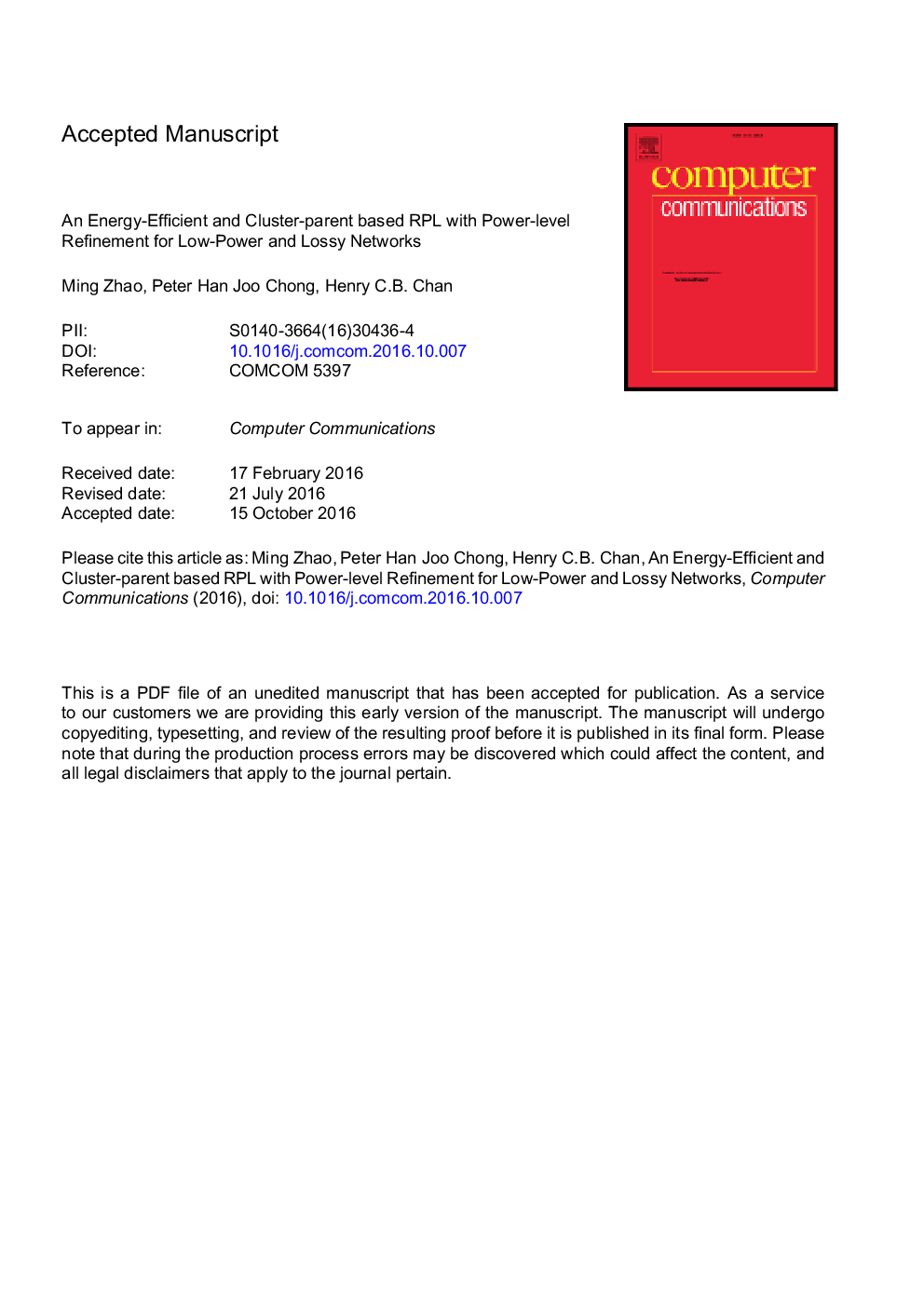| Article ID | Journal | Published Year | Pages | File Type |
|---|---|---|---|---|
| 4954351 | Computer Communications | 2017 | 20 Pages |
Abstract
Low-Power and Lossy Networks (LLNs) have emerged as a new and attractive paradigm. The limited resources and dynamic environment have driven research towards finding an energy-efficient, reliable, stable, and scalable routing design. IETF has standardized the IPv6 Routing Protocol for Low-Power and Lossy Networks (RPL) to provide interoperability for LLNs. This paper proposes a hybrid, energy-efficient cluster-parent based RPL routing protocol, called HECRPL, with the aim of achieving energy-efficiency and reliability simultaneously. HECRPL incorporates the following five major features to effectively prolong the lifetime of the network, while achieving a high reliability and fairness for the network: 1) a top-down approach for optimal cluster-parent-set (CPS) selection to minimize the energy depletion of the network and leverage path diversity, while achieving the global goal, 2) an overhearing-based coordination among nodes in a CPS to avoid duplicate transmissions, 3) the priority in a CPS is based on a hybrid of residual energy and the lossy conditions of wireless channels, 4) an efficient loss recovery scheme for the detection and retransmission of the lost data packets, and 5) the transmission power is refined to increase the network capacity (increase spatial reuse) and further reserve energy. Extensive simulation results demonstrate that our proposed approach can effectively prolong the lifetime of the network and achieve more reliable data delivery compared to the benchmark, i.e., RPL, across a wide range of scenarios.
Related Topics
Physical Sciences and Engineering
Computer Science
Computer Networks and Communications
Authors
Ming Zhao, Peter Han Joo Chong, Henry C.B. Chan,
